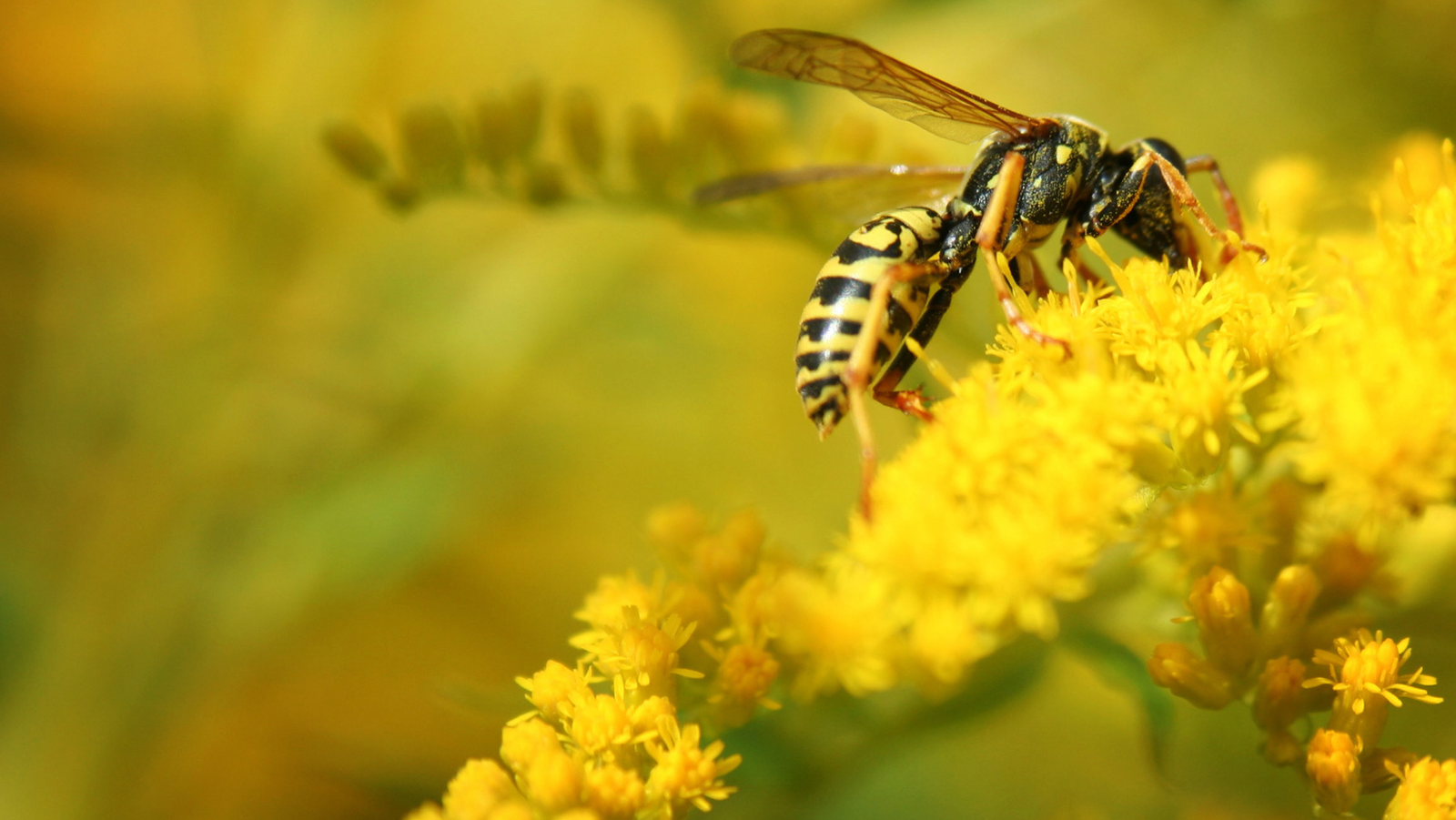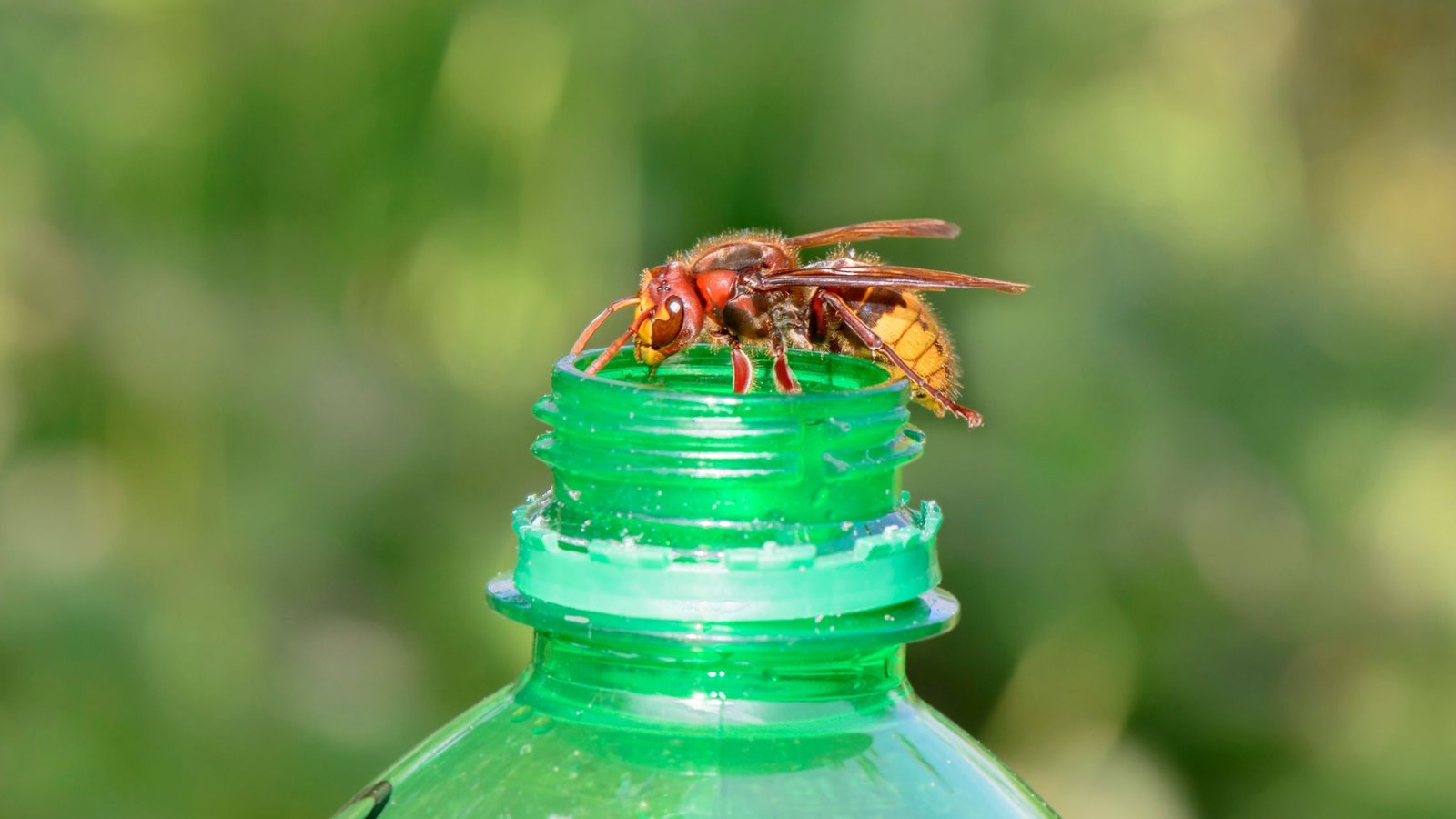What smells do hornets hate? Natural scents that repel them

Hornets are not only unpleasant, but also dangerous neighbors, especially if you are allergic. Their stings are painful, so it is natural that when we notice these insects in our homes or yards, we look for ways to get rid of them.
One effective solution is natural scents that are very unpleasant to hornets. Unable to tolerate them, they are likely to leave you in peace. So let’s discuss what scents hornets dislike and how to use this to your advantage.
Table of contens
How certain smells protect you from hornets
We know that hornets will always appear where we leave something sweet, unfinished food, an empty ice cream packet, etc. Some smells and tastes attract them, while others they cannot stand. This is precisely what we should take advantage of – scents that repel wasps act as natural repellents. Scents as a means of repelling hornets will be very appealing to those who want to use eco-friendly products.
The most effective repellents are those that are completely natural.

What smell do hornets hate?
A hornet sting is very unpleasant, but it can be avoided by removing these insects from your yard. If you want to combat hornets using scents, you have a wide range of options to choose from. You can even find some of these remedies in your kitchen.
Cloves
We know that cloves have a sharp, rather intense aroma that not everyone likes. Hornets dislike it very much, so you can put cloves in a bowl of fruit at home, place them near a hornet’s nest, or hang bags of cloves on your patio or other outdoor recreation area.
Incense or smoke
Not only do hornets dislike smoke and its smell, but it also disrupts their orientation, prompting them to leave the area. You can light a piece of wood or incense. This method is most suitable for outdoor use, especially if burning wood.

Essential oils
Among the answers to the question of what scent hornets dislike, essential oils are often mentioned—especially mint, lavender, and eucalyptus. Hornets really dislike essential oils! Essential oils are suitable for eliminating these insects in your home, and if they are hanging around your yard, then the plants themselves will have the same effect – plant lavender, basil, peppermint, sage, and rosemary near your patio or other relaxation areas.
Mint, peppermint
The scent of mint is one of the most hated by hornets, so why not take advantage of that! Plant mint near your home – it has two benefits: it repels hornets and makes wonderful tea. Place a pot of mint on the table on your terrace. When eating outside or drinking your morning coffee, spray some mint essential oil around you.
Try peppermint sprays – use them to “bless” hornet nests. Peppermint oil will have the same effect. Put a few drops on a cotton ball and place it next to you outside, near the windows in your home, or near a hornet’s nest.
Natural scents are an excellent way to combat hornets. Incidentally, many of these scents are very pleasant to humans, so they will only add extra warmth and coziness to your home or outdoor recreation area.

Apple cider vinegar
Hornets cannot tolerate this scent, just like they cannot tolerate peppermint. Pour a little apple cider vinegar into a bowl and place it near the hornets’ nest, on the windowsill at home if the window is open, or on the table when dining outdoors.
Lemon and vinegar
What is healthy for us is unpleasant for hornets. We are referring to lemons, whose aroma is intolerable to them. You can mix lemon juice or vinegar with water and spray the mixture on hornet nests or places where you often see these insects. For a more intense scent, you can mix only lemon juice and vinegar.
Also, if you are dining outdoors or just relaxing on the terrace, place a cut or sliced lemon on the table.
Garlic or onion
The intense, pungent smells of garlic and onions are also not among the favorites of hornets, so these will be excellent means of repelling these insects. You can prepare a solution with chopped garlic and spray their nest, or place chopped garlic or onion on the table.

Do scents also help repel wasps?
Absolutely. Although hornets and wasps differ in certain respects, their aversion to certain smells is usually the same. So, whatever smell hornets dislike, wasps will dislike too. Therefore, by using the aforementioned smells as a repellent, you will get rid of both hornets and wasps.
What to do if scents don’t work?
If you have tried various scents as a means of combating hornets but have been unable to get rid of them, then scent alone is not enough. The most important thing is to find the source of the problem, i.e., the hornet’s nest.
You can try to destroy the nest yourself, but you need to know various nuances: what tools to choose, how to dress, and even what time of day is best to do it. Only by knowing how to safely destroy hornet nests will you protect yourself from danger and achieve results.
Additional ways to protect yourself from hornets
In addition to using scents, you can try other ways to repel hornets. Here are some effective methods that don’t require much effort but are effective.
- You can make traps and hang them on trees in your garden. Pour something sweet into the traps to attract the insects, and once they get caught, they won’t be able to escape.
- Purchase special insect repellents. Choose ones that are specifically designed to repel hornets.
- During the warm season, do not leave food that attracts hornets indoors or outdoors. They find it difficult to resist sweets, sweet drinks, fruit, etc. After eating outdoors, do not leave unwashed dishes, throw away juice packaging, apple cores, stone fruit pits, and other waste.
- Keep your yard tidy: do not leave containers and trash cans open, and clean the grill after use if you are barbecuing.
- Keep your windows closed or use insect screens.
When is it time to call hornet removal services?
Now you know what smells hornets dislike and what natural remedies can help repel them. However, if the scents do not help and the hornets still do not leave, the safest solution is to contact hornet extermination specialists. Professionals will find the hornets’ nests, assess their size, and select the best methods to exterminate the hornets from your territory.
